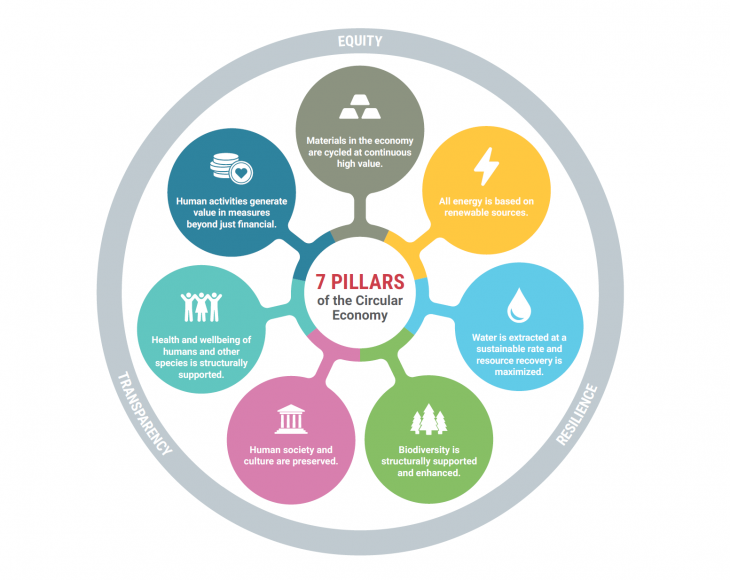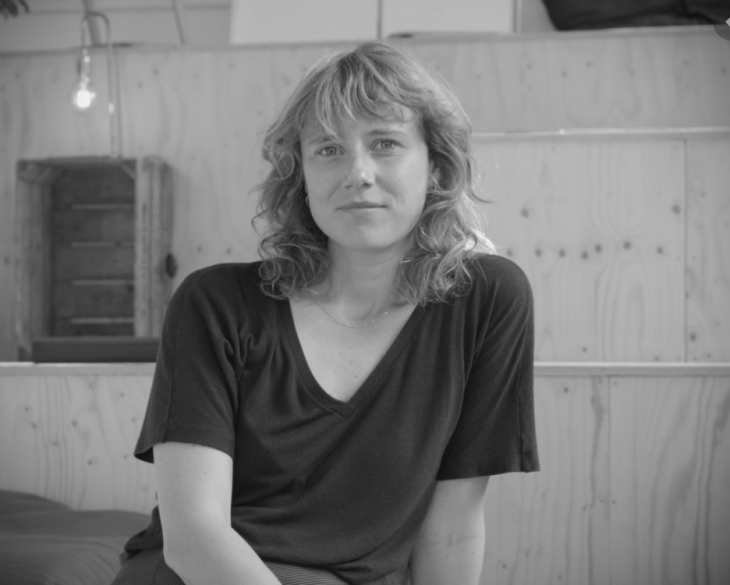CIRCULAR ECONOMY IN THE BUILT ENVIRONMENT I – II
Faculties: Tamara Streefland, Nico Schouten
Leveraging the principles of systems thinking to drive the transition towards a sustainable future

Ph credits: Metabolic 2019
Cities are our future. They are the drivers of the global economy, centers of creativity, diversity, and interaction – and they are home to the majority of the global population. Cities cover only 3% of the earth’s surface, yet they consume 75% of global natural resources, making them effective places to address critical environmental and social challenges (1).
Growing urban regions and consumption patterns combined with an extractive and wasteful economy create a plurality of adverse environmental impacts both inside and outside of our human habitats. The footprint of most cities is far greater than the physical space they occupy.
Many of the challenges facing today’s urban dwellers are closely linked to environmental challenges we see on a global scale. Too many high-polluting vehicles, heavy industry, and temperature extremes contribute to, and are exacerbated by, irreversible climate change. Urban expansion and lack of green space contribute to regional biodiversity loss, and disconnectedness from nature and natural resource use entrenches unsustainable and unhealthy consumption habits. Our linear economy is at the root of these challenges: core to this economic model is a fundamental disconnect between how we live our lives and do business, and what this means for the natural ecosystems that allow us to live happy, healthy sustainable lives.
So, how might cities grow without crossing the planetary boundaries while dividing sufficient resources in an equitable and just way amongst all inhabitants? We need to transform our economy and we can do this by radically changing the way we design our habitats across scale.
Human and environmental health in urban areas come together under the framework of the circular economy. In a circular economy, everything we depend on for our health and wellbeing is carefully preserved. This includes preserving the value of products and the natural capital of the environment on which we depend. It goes beyond simply recycling to redesigning our built environment as one that is regenerative and resilient.
This workshop aims to get you acquainted with the principles of systems thinking and the circular economy and bring them into practice using your design proposals. We will create a system map, identify root causes and leverage points for change, and learn methods to help link these to impactful solutions and designs that achieve systemic transformation in urban areas and specifically the built environment.
We will dive into several frameworks, tools, and methodologies we use to help transform operations and drive long-term, meaningful sustainability progress and avoid unintended consequences and burden shifting. An example is our ‘7 Pillars of the Circular Economy’ framework, used by companies and cities globally. We will use it as a holistic framework to assess trade-offs and understand the net positive impact of your design decisions and solution. We will present several of our case studies across scale and context moving from materials to sustainable urban regions and back.
Learning Objectives
At course completion the student will:
- Be familiar with the principles of systems thinking and impact assessments to identify root causes and leverage points in achieving progress towards a sustainable change
- Understand the basics of the circular economy as it relates to the urban context and the built environment, including potential applications and their limitations
- Be able to bring these tools into practice and assess how your thesis project addresses the issues you are trying to solve, identify systemic barriers to implementation and propose solutions that can help overcome them.
Faculty

Tamara Streefland
Tamara leads Metabolic’s Cities Program, in which she tackles the major urban challenges the world is facing. Her projects entail the design of viable and inclusive interventions at the interface of social and natural resilience.
She has been involved in a wide range of projects regarding sustainable cities with a focus on topics such as water ecologies, the freight sector, waste systems, and renewable energy, in cities including Amsterdam and New York City. In these projects, she is able to conduct comprehensive systems analysis, in-depth research, and collaborative design as a basis for creative and feasible strategies towards a more sustainable and circular state.
Her background as an earth scientist and urban designer allows her to integrate knowledge on scientific processes that underlie the ecological impacts with creative solutions that engage novel technologies and are sensitive to social issues.

Nico Schouten
Nico joins Metabolic as a Green Building Consultant. He focuses on the implementation of circular principles and system thinking in building projects, working with architects to create clear frameworks on how to design and realise the circular buildings of the future.
While undertaking a Masters in Architecture at the faculty of Architecture and the Built environment at the TU Delft, Nico became interested in using what he was learning to build a more sustainable world. This led him to further research the concept of systems thinking, and how to implement circular strategies in his designs. He wrote a thesis and created a roadmap on the perception of plastic waste in the built environment, using this research to design a building component made of recycled plastic to be implemented in a urban ecosystem in Amsterdam North as part of his graduation project.